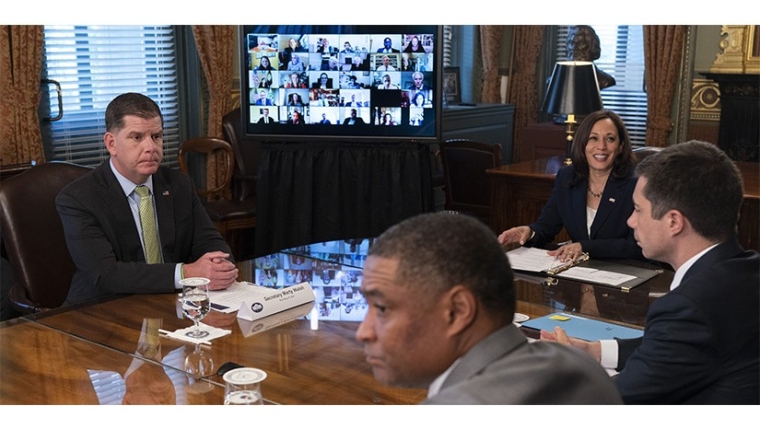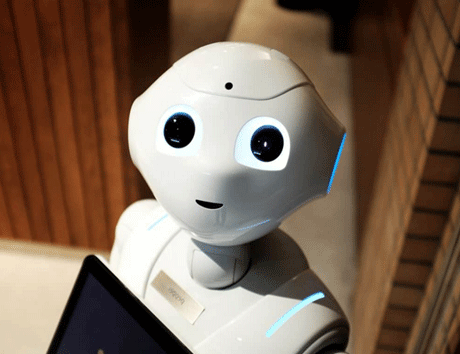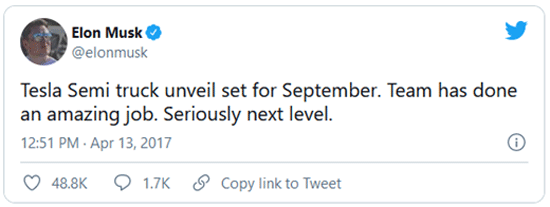
By Patrick Watson*
The official employment data is a bit confusing.
The US Bureau of Labor Statistics says 9.5 million Americans were unemployed in June. Another 4.6 million had part-time jobs while seeking more. And another 6.4 million weren’t actively looking but said they wanted jobs.
So if this data is right, over 20 million people are experiencing some level of employment distress. But not all are getting help; the Department of Labor reported 13.8 million people receiving unemployment benefits as of June 26.
That’s a lot of unemployment when, according to the “JOLTS” job openings report, US employers had 9.2 million job openings in May (this report runs a month behind).
How do we reconcile this?
Some blame it on extra pandemic unemployment benefits, yet job openings remain high even in states that ended them early. So that looks like a partial explanation, at best.
The numbers will sort out eventually. Meanwhile, we know two things with high confidence.
- Many US employers want to hire more workers.
- Many US workers, for whatever reason, don’t want to work for those employers.
In theory, higher wages should solve this shortage. Supply and demand will balance at the right price.
Wages are indeed rising, but apparently not enough. Workers seems to want more than employers are willing or able to give.
Frustrated employers are looking more closely at job automation. The machines can make a difference even if they don’t directly replace humans. All they have to do is make existing workers more productive.
Unfortunately, I don’t think this a solution they’ll try… at least, not anytime soon.

Source: Pixnio.
Delayed disruption
Worries that robots will steal human jobs aren’t new. For example, back in 2017 I wrote about the potential economic devastation of school bus and truck automation.
At the time, Tesla (TSLA) had recently disclosed its work on autonomous electric cargo trucks. They seemed to be making progress, too. Reuters reported the company had sought permission to test its trucks on Nevada’s public highways. Elon Musk tweeted (with his usual modesty):

That was over four years ago. Seen any Tesla driverless trucks yet?
Autonomous vehicles aren’t killing jobs, nor will they do so soon; even if this Musk dream comes true next week, it will take a few years for significant numbers to reach the road.
Job automation isn’t an instant process. Most employers can’t just say, “Enough with these uppity job applicants. I’m switching to robots.” Even if the technology exists, implementation takes time. Meanwhile, they have to keep operating with humans.
And it turns out humans want more than just a livable wage.
This labor shortage is producing many stories about unhappy employees. It isn’t just the pay that bothers them.
For example, this month 11 workers quit from a Lincoln, Nebraska, Burger King. The incident went viral with pics of their “We All Quit, Sorry For The Inconvenience” message on the outdoor marquee sign.
The departing employees (including the general manager) said pay wasn’t the issue. The store’s air conditioning had been out of order for weeks, making the kitchen unbearably hot. They said management was either unresponsive or dismissive.
And at a Frito-Lay manufacturing plant in Topeka, Kansas, almost the entire workforce is on strike. They claim to be working as much as 84 hours a week, with no days off. And, as at the Burger King, air conditioning is an issue. One worker wrote an open article describing the conditions.
At 7 am, our warehouse is 100 degrees. We don't have air conditioning. We have cooks in the kitchen on the fryers that are 130 or 140 degrees making chips and sweating like pigs. Meanwhile, the managers have A/C… This is from a Fortune 500 company that is making billions.
(Frito-Lay is a unit of PepsiCo (PEP), whose 2020 net profit was over $7 billion.)
Air conditioning might have prevented both those situations. Comfortable temperatures raise productivity and may even reduce the need to raise pay. The payoff for shareholders would be quick and significant.
However, a company whose managers think a simple technology like air conditioning isn’t necessary probably won’t rush to replace humans with the latest robots. They believe they already have robots.

Source: MIT/Flickr.
Forced change
Employers are in a tough spot.
- They already face an unfavorable demographic situation that reduces the labor supply.
- Automation usually isn’t a quick solution and can also be costly.
- Higher wages, while necessary, may not be sufficient.
Their best bet is to do whatever it takes to make existing workers more productive. That starts with providing safe, comfortable working conditions. It’s not hard and not necessarily expensive. But inexplicably, some employers still don’t want to do it.
In the past, major change had to be forced. The 1938 Fair Labor Standards Act (FLSA) gave US workers time-and-a-half pay for working more than 40 hours a week. Opponents at the time predicted the sky would fall. Here’s Rep. Edward Cox (D-Georgia):
“[The Fair Labor Standards Act] will destroy small industry... [these ideas are] the product of those whose thinking is rooted in an alien philosophy and who are bent upon the destruction of our whole constitutional system and the setting up of a red-labor communistic despotism upon the ruins of our Christian civilization.”
Also in 1938, the National Association of Manufacturers said FLSA “constitutes a step in the direction of communism, bolshevism, fascism, and Nazism.”
Yet 80+ years later, the US economy survives. Protecting workers from excessive hours didn’t destroy small industry. But today we still have Americans working in literal sweatshops, and employers who see no problem with it.
This is going to change. If market forces don’t do it, political forces will.
*Patrick Watson is senior economic analyst at Mauldin Economics. This article is from a regular Mauldin Economics series called Connecting the Dots. It first appeared here on June 15, and is used by interest.co.nz with permission.
11 Comments
It is coming. Look at how Elon is building his cars. Look at new saw mills and robotic bricklaying. As wage demands go up, more and more software driven robotic solutions are being developed.
Look at how Elon is building his cars. Look at new saw mills and robotic bricklaying
Those are all manufacturing domains where job-replacing automation has been active since the 1970s.
Automation turning the tide on higher wages and bringing jobs back to the West is a pipedream sold by academics and professors.
The reality is that the East is better equipped to retain manufacturing in its post-IR4.0 form, owing to better industrial infrastructure, knowhow and skilled workforce.
When you hear Jeff Bezos, all hyped by his trip into almost space, gushing that his employees paid for it, then you know something is radically wrong.
I see nothing wrong. No one held a gun to your head to buy via Amazon. He has provided a service that people want, otherwise it would not have happened.
If he wants to fly top space good on him. Thousands of high tech jobs will have been created and the tech will leach into your every life and improve it. That's how science and dreamers achieve things.
I see nothing wrong legally but from a moral standpoint it was pretty hard to watch. Like we get it Jeff, you’re a billionaire no need to be an asshole about it.
I think it's not automation that threaten jobs, it's technology.
Learnt last week than Tesla have replaced 20 robots with a mega press in the mega factory. who’d have thought we’d be making robots redundant!
Sounds great huh. Should make cars cheaper. But central bankers call that deflation and won't allow it to occur.
Productivity improvements don't make anything cheaper with our rigged monetary system anyway.
As soon as anything looks like it might be being made faster or more efficiently which would benefit consumers the criminal central bankers swoop in and make sure the price goes up anyway. The price of goods and services is never permitted to fall as we improve and the cost of assets outside their CPI index is collateral damage.
It's perverse, but being decreases in productivity might actually work out much better for the common person since consumer prices are centrally planned and will be whatever they are regardless.
"That starts with providing safe, comfortable working conditions. It’s not hard and not necessarily expensive. But inexplicably, some employers still don’t want to do it." Capitalist attitude that treats workers a slaves, and only begrudgingly grants things like wages and conditions, and only the bare minimum at that. It needs to change.
On RNZ a couple of weeks ago I was interested to listen to Kim Hill interviewing a Company CEO from the US (I don't which company as i hadn't heard earlier interviews), clearly on a multi-million dollar salary, but who gave up $1 million of that salary to enable the average pay of his company's employees to go from $38K to $70K. Kim naturally asked him what the outcomes were. A few that I remember him listing were; a marked drop in staffing costs, marked increase in staff retention and job satisfaction, increased productivity, improved customer satisfaction. He went on to say that the justification given, worldwide, for huge CEO salaries is essentially myth, just rubbish provided by those who are the recipients of those salaries.
Dan Price, CEO of Gravity Payments:
https://www.rnz.co.nz/national/programmes/saturday/audio/2018803421/dan…

We welcome your comments below. If you are not already registered, please register to comment
Remember we welcome robust, respectful and insightful debate. We don't welcome abusive or defamatory comments and will de-register those repeatedly making such comments. Our current comment policy is here.